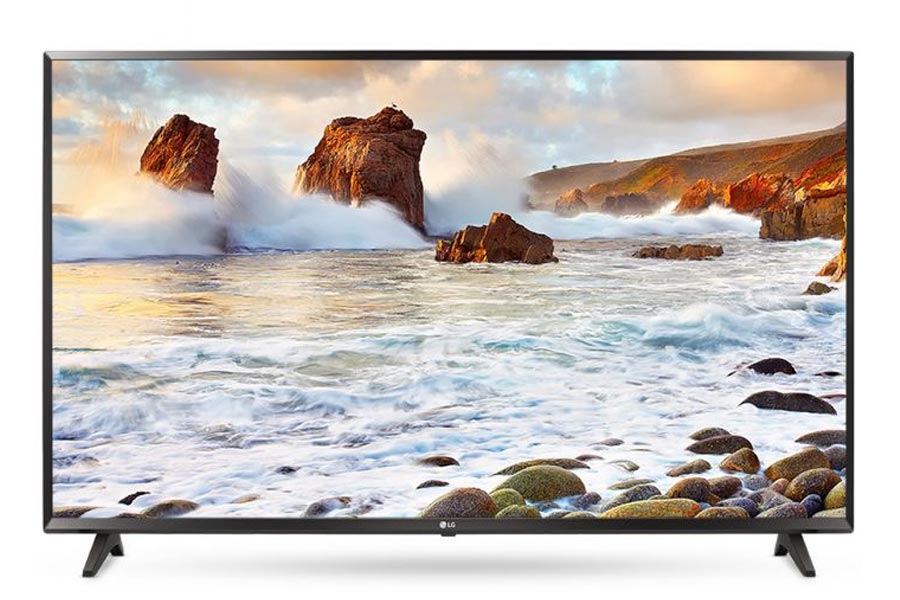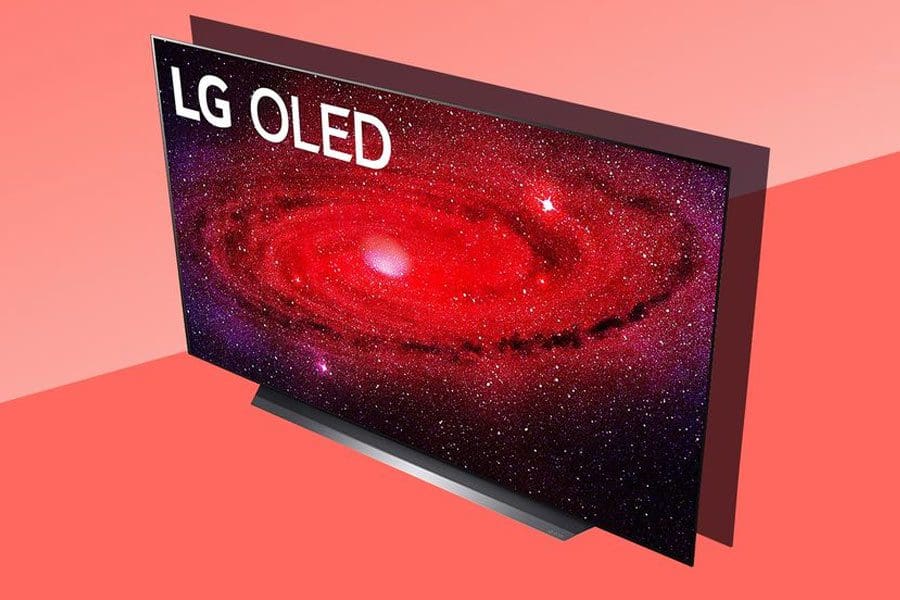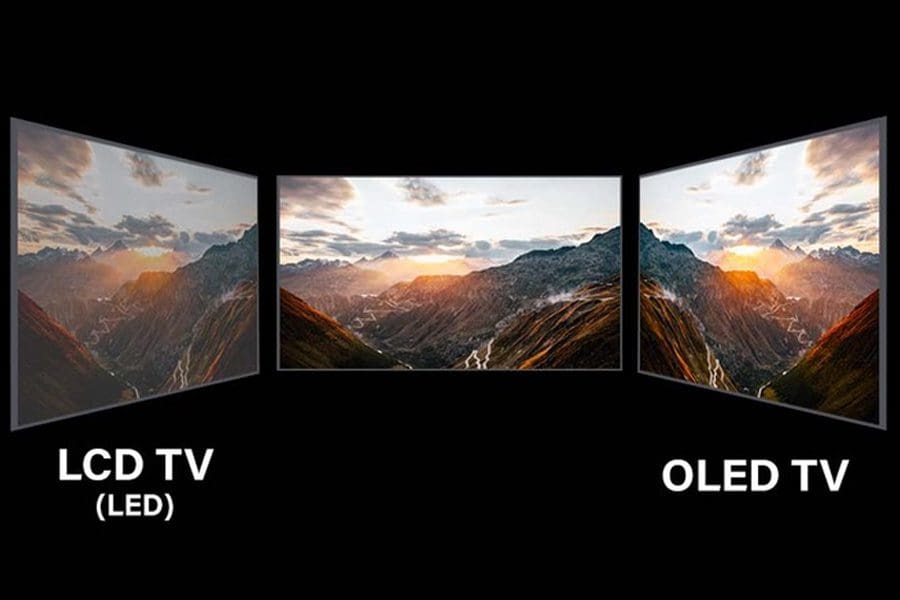LED TVs have ruled the TV market for quite some time, and now we have another option providing better visuals and darker blacks- OLED TV. Undoubtedly, both types of TV provide top-notch visuals and user experience. Both TVs have thin panels with millions of pixels that deliver clear perfectly saturated picture quality.
OLED and LED TV are both a great catch. Their features and prices may often put customers in dilemma. Well, worry no more. We’ve compiled some of the differences between the LED and OLED TV. So, you can get some ideas if you are planning to buy a TV in Nepal.
LED TV
LED TVs are a type of LCD TV with LED backlights. LED TV uses many layers to create the picture one sees with the help of an LED backlight. LEDs are light-emitting diodes that determine the black levels, contrast, and crispness of the display. They shine through a liquid crystal layer, and each liquid crystal pixel acts as a shutter, either blocking the light or allowing it to pass through.

Nonetheless, the quality of LED TVs depends upon how the LED in their backlighting is made. The number and quality of the LEDs used in the TVs. There is plenty of decent LED TV available in the market at present.
OLED TV
The ‘O’ in OLED stands for Organic LED TV. Unlike regular LED TVs, OLED TVs can produce light and color from a single diode when electricity is passed. This is why the OLED TVs do not need a separate backlight making OLED TV naturally thin and flexible. And, did you know? OLED screens are rollable as well because of their thin body.

LG is the sole global manufacturer of OLED panels for TVs. So, it is given that LG produces high-end OLED TVs. The recently launched LG C1 OLED models will surely take your breath away. The C1 OLED TVs with 48/55/65 inches 4K Ultra HD panel along with a refresh rate of 120Hz. Besides, the C1 OLED TV support HDR10, Dolby Vision, and HLG standards.
LED Vs OLED TV- Comparison
Honestly, the answer differs as per your room’s brightness, the viewing space, the setup, and many others. Nonetheless, as OLED is a premium display, so, we’ll be comparing it with top-end LED TV. Let’s see which one is a good display. And, which suits you?
Also, the latest TV launched by LG is the LG C1 TV which features an OLED screen that gives a premium display along with more viewing angle compared to TVs like Mi TV 4X and 4A Pro which features an LED screen.
Black Level
To attain excellent picture quality, a display panel should have a significant level of blacks. Deeper blacks mean higher contrast and richer colors; as a result, more realistic images.
LED TVs often struggle to produce dark blacks and may suffer from light bleed caused due to the LED backlights shining behind the LCD panel. However, OLED TVs do not suffer from such problems as it doesn’t produce any light. So, it has magnificent black levels that ultimately provide richer images.
Verdict- OLED TV has better Black levels
Brightness
As much as having dark black levels is problematic for the LED TV, LED TVs to have a considerable advantage when it comes to better and higher brightness levels. The brightness of the LED TVs can be preserved even more as the size of individual LEDs get smaller.
OLED TV also has decent brightness levels. However, using OLED pixels to their maximum brightness for an extended period can adversely affect its lifespan. Also, the pixels take a slightly longer time to return to total black.
All of it comes down to how bright the room is. If the room is very bright, then an LED TV can be a better choice. However, in a darker room, OLED will perform the best with their black levels and richer contrast levels.
Verdict- LED TVs to have a better brightness level
Viewing Angles
The LED TVs have smaller viewing angles compared to the OLED TVs. You can get the best experience from LED TV if you view from the center. However, the more you move to the sides, the more you’ll notice diminished colors and contrast. It is caused by the backlight and the shutter effect of the pixels. Honestly, LED TVs, even the best ones, easily lose in front of OLED TVs. With OLED’s self-lighting pixels, you can view the perfect pictures from any angle.

Verdict- OLED TVs have a wider viewing angle
Color Space
While talking about the color accuracy of the TV, OLED won this comparison before QLED TVs. With improved backlight, quantum dots LED TVs have drawn in terms of color accuracy, color brightness, and volume.
If you are looking for TVs with a Wide Color Gamut or HDR, both OLED and premium LED TV models will support them. So, depending upon the brightness of your room, you can choose one. You can opt for OLED TVs, which provide a better contrast ratio, in slightly darker rooms. However, if you want well-saturated colors at extreme brightness levels, then premium LED TV won’t be able to compete with OLED in this aspect at all.
Verdict- If you have a darker room, opt for OLED TV. However, if you need a perfectly saturated display at extreme brightness levels, an LED TV is the one.
Durability
LED TVs have proven themselves to be durable and reliable throughout all these years. OLED TVs, even though are recently launched, have an expected lifespan of around 100,000 hours. They both have a similar lifespan.
While LED TVs have proven to last their expected lifespan without any difficulty, OLED TVs might face some risk of burn-in. Burn-in happens when you spend hours every day watching programs that display bright static images constantly. It causes premature aging of those pixels.
However, LG has tried to reduce the risk of burn-in in its OLED TV. Also, you can change channels and refresh the TV occasionally to reduce the risk of burn-in.
Verdict- If you watch the same content 24/7, opt for LED TV. If you watch varieties of content, opt for OLED
TV.
Power Consumption
As OLED panels do not need backlight, they consume less power compared to LED TVs. LED TVs need a backlight to produce brightness. Also, its light must pass through the LCD shutters before emitting the display; so, it naturally consumes more power, even for the same level of brightness.
Verdict- OLED TV consumes less power.
Conclusion:
Contemplating the above aspects and other aspects, we can conclude that OLED TV is better than LED TV in many aspects. OLED is lighter and thinner, and also consumes less power. Even though you may have to add in a few more thousand for the OLED TV, one can say that they are worth the price. OLED TV by LG is quite a great catch. Nevertheless, LED TVs are also best for the features they provide at their offered price. You can choose the TV of your choice depending upon your budget, and the size and brightness of your room.
Also Check: Xiaomi Mi TV Price In Nepal







